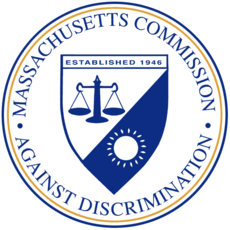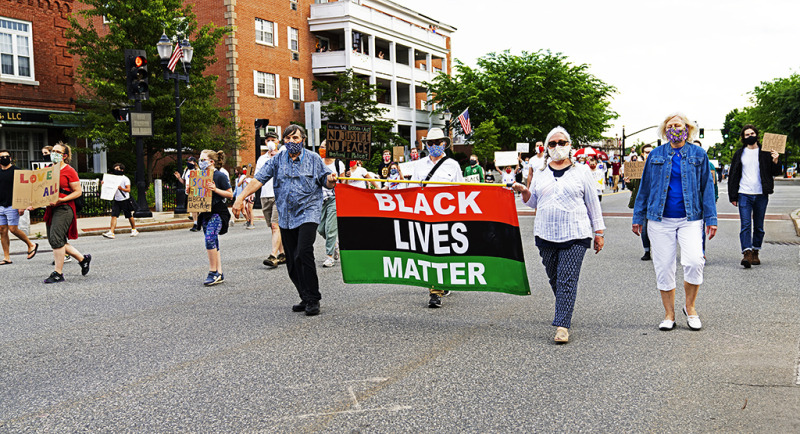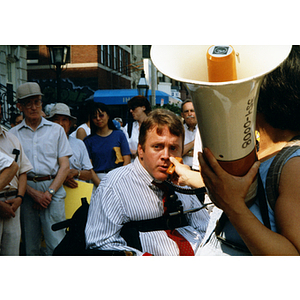Law and Legal Research
- About This Guide
- Navigating the Court System Toggle Dropdown
- Legal Resources by Topic
- Research Services Department at BPL
Legal Research Resources
-
Harvard Civil Rights-Civil Liberties Law Review
 CR-CL is the nation’s leading progressive law journal. It is available at BPL both online and in print.CR-CL website: journals.law.harvard.edu/crcl
CR-CL is the nation’s leading progressive law journal. It is available at BPL both online and in print.CR-CL website: journals.law.harvard.edu/crcl -
Harvard Blackletter Law Journal
 The Harvard BlackLetter Law Journal is a forum for activists, lawyers, those who are or who have been incarcerated, scholars, and others to confront cutting-edge issues facing Black communities. Available online at BPL.Journal website: journals.law.harvard.edu/blackletter
The Harvard BlackLetter Law Journal is a forum for activists, lawyers, those who are or who have been incarcerated, scholars, and others to confront cutting-edge issues facing Black communities. Available online at BPL.Journal website: journals.law.harvard.edu/blackletter -
Civil Rights and Social Justice
 A guide from HeinOnline containing hearings and committee prints, legislative histories on the landmark legislations, CRS and GAO reports, briefs from major Supreme Court cases, and publications from the Commission on Civil Rights, this database allows users to educate themselves on the ways our civil rights have been strengthened and expanded over time, as well as how these legal protections can go further still. Only available at Central Library.
A guide from HeinOnline containing hearings and committee prints, legislative histories on the landmark legislations, CRS and GAO reports, briefs from major Supreme Court cases, and publications from the Commission on Civil Rights, this database allows users to educate themselves on the ways our civil rights have been strengthened and expanded over time, as well as how these legal protections can go further still. Only available at Central Library. -
George Mason University Civil Rights Law Journal
 The Journal's goal is to provide informative and innovative commentary on a wide variety of issues pertaining to civil rights that contribute to the legal community. Available online through BPL.Journal Website: www.crlj.org
The Journal's goal is to provide informative and innovative commentary on a wide variety of issues pertaining to civil rights that contribute to the legal community. Available online through BPL.Journal Website: www.crlj.org -
Human Rights Magazine from the American Bar AssociationFor decades, Human Rights has been a trusted source of expert ideas, opinions, and discourse on a diverse array of topics in the human and civil rights arena. Available online at BPL.Magazine website: www.americanbar.org/groups/crsj/publications/human_rights_magazine_home
-
Documents from the Lawyers' Committee for Civil Rights Under LawThe Lawyers’ Committee uses legal advocacy to achieve racial justice, fighting inside and outside the courts to ensure that Black people and other people of color have the voice, opportunity, and power to make the promises of our democracy real. The BPL has publications dating from 1970 to the present, available online and in print.Organization Website: www.lawyerscommittee.org
-
Michigan Journal of Race & LawFrom the University of Michigan Law School, MJR&L is a legal journal that explores issues relating to race, law, and Civil Rights in general. Available online at BPL.Journal website: mjrl.org
-
Journal of Gender, Race and Justice
 From the University of Iowa, JGRJ provides a focus on race, sex, class, religion, and other subjects. "Our conception of justice looks beyond legal rights to how fairness, equity, and respect delineate the boundaries of what legal justice must, at a minimum, entail."Journal website: jgrj.law.uiowa.edu
From the University of Iowa, JGRJ provides a focus on race, sex, class, religion, and other subjects. "Our conception of justice looks beyond legal rights to how fairness, equity, and respect delineate the boundaries of what legal justice must, at a minimum, entail."Journal website: jgrj.law.uiowa.edu
Related Guides
The Right to Protest
"The First Amendment protects your right to assemble and express your views through protest. However, police and other government officials are allowed to place certain narrow restrictions on the exercise of speech rights." Learn more from the ACLU.
Fair Housing & Civil Rights
From the ACLU: "Housing is a basic human right, and equal access to housing is a civil right guaranteed under our laws. To create a more just society, we must work to end housing policies and practices that disproportionately lock out marginalized communities from safe and stable housing."
Civil Rights & the Law
Jump to: The Civil Rights Act of 1964 | Removal of Civil Rights | Massachusetts Law & Enforcement | Resources for those facing Discrimination
What Are Civil Rights?
 Civil rights are often confused with civil liberties. Civil rights deal with legal protections or enforceable rights/privileges. They are not in the Bill of Rights. For example, the right to vote is a civil right but not a civil liberty. Civil liberties are natural rights which are inherent to each person, such as those listed in the Bill of Rights - life, liberty, and the pursuit of happiness, for examples.
Civil rights are often confused with civil liberties. Civil rights deal with legal protections or enforceable rights/privileges. They are not in the Bill of Rights. For example, the right to vote is a civil right but not a civil liberty. Civil liberties are natural rights which are inherent to each person, such as those listed in the Bill of Rights - life, liberty, and the pursuit of happiness, for examples.
Discrimination occurs when the civil rights of an individual are denied or interfered with. Various jurisdictions have enacted statutes to prevent discrimination based on a person's race, sex, religion, age, previous condition of servitude, physical limitation, national origin, and in some instances sexual orientation.
Wex Law Dictionary provides a history of civil rights and the law starting with the Reconstruction Era and ending with Disenfranchisement, or the removal of Civil Rights. This guide highlights the Civil Rights Act of 1964, Massachusetts Law, and resources for those facing discrimination.
Federal Law
The Civil Rights Act of 1964
The Civil Rights Act of 1964 is a federal law that prohibits discrimination on the basis of race, color, national origin, sex (including pregnancy), and religion in employment, education, and access to public facilities and public accommodations, such as restaurants and hotels. The employment provisions of the law are often referred to as "Title VII," based on their location in the U.S. Code. A brief history of the Act:
"In June 1963, President John Kennedy asked Congress for a comprehensive civil rights bill, induced by massive resistance to desegregation and the murder of Medgar Evers. After Kennedy's assassination in November, President Lyndon Johnson pressed hard... to secure the bill's passage the following year. In 1964, Congress passed Public Law 88-352 (78 Stat. 241)....Passage of the Act ended the application of "Jim Crow" laws, which had been upheld by the Supreme Court in the 1896 case Plessy v. Ferguson, in which the Court held that racial segregation purported to be "separate but equal" was constitutional." (US DOL)
Specific Civil Rights are discussed in detail in different subject areas of this research guide such as housing law, disability law, and others.
The US Justice Department has a Civil Rights Division which "enforces federal statutes prohibiting discrimination on the basis of race, color, sex (including pregnancy, sexual orientation, and gender identity), disability, religion, familial status, national origin, and citizenship status."
With enforcement policies in place, how is the removal of Civil Rights possible?
Disenfranchisement or Removal of Civil Rights
 Disenfranchisement most frequently refers to the removal of voting rights, but the removal of any civil right is disenfranchisement. The Voting Rights Act of 1965 (52 U.S. Code § 10101) states: "All citizens of the United States who are otherwise qualified by law to vote at any election by the people . . . shall be entitled and allowed to vote at all such elections, without distinction of race, color, or previous condition of servitude." However, states can prohibit convicted felons from voting after serving their prison sentence, though felons can still become President, as noted in the 2024 US election with convicted felon Donald Trump getting re-elected as President.
Disenfranchisement most frequently refers to the removal of voting rights, but the removal of any civil right is disenfranchisement. The Voting Rights Act of 1965 (52 U.S. Code § 10101) states: "All citizens of the United States who are otherwise qualified by law to vote at any election by the people . . . shall be entitled and allowed to vote at all such elections, without distinction of race, color, or previous condition of servitude." However, states can prohibit convicted felons from voting after serving their prison sentence, though felons can still become President, as noted in the 2024 US election with convicted felon Donald Trump getting re-elected as President.
Voter disenfranchisement is a popular method of controlling the public and therefore who gets voted into office. The image above from the ACLU (Nov, 2024) highlights how frequently this basic democratic Civil Right is taken from American citizens. The 2013 Supreme Court decision they are referring to is The Shelby County Decision.
Gerrymandering, strict voter photo ID laws, restricting mail-in voting, are just a few voter suppression methods that are popularly used. The Justice Coalition has a list of 72 Forms of Voter Suppression.
What Laws Does Your State Have that Disenfranchise Voters?
The State Voting Rights Tracker by the Voting Rights Lab analyzes voting and election laws across all 50 states and the District of Columbia and provides near-real time analysis of voting rights legislation pending across the country.
Massachusetts Civil Rights - Law & Enforcement
The Massachusetts Commission Against Discrimination, the Attorney General's Civil Rights Division, and the Boston Police Civil Rights Unit are all involved with enforcing or overseeing Civil Rights in Massachusetts. This section briefly explains how each group manages hate crimes, hate incidents, and other forms of discrimination
In 1979 Massachusetts passed the Massachusetts Civil Rights Act (MCRA). The US Attorney's Office - District of Massachusetts has a list of Civil Rights Offenses, organized by statue. See the webpage Massachusetts law about discrimination from the Massachusetts Trial Court Libraries. They cover all Massachusetts laws & regulations that prohibit discrimination, i ncluding the Massachusetts Commission Against Discrimination.
ncluding the Massachusetts Commission Against Discrimination.
"MCAD is the independent state agency that enforces the Massachusetts anti-discrimination laws by investigating complaints of discrimination in employment, housing, public accommodations, and other aspects of everyday life."
MCAD is a neutral entity. Anyone who lives in, works in, or visits Massachusetts may file a complaint if they believe they were treated differently or unfairly based on their identity as a member of a protected class.
Massachusetts also has the Attorney General’s Civil Rights Division. You may file a complaint with the Attorney General's Office If you believe a company, business, organization has violated your rights. The AG is a government agency, as opposed to MCAD. The division enforces the Massachusetts Civil Rights Act by obtaining civil rights injunctions to protect victims of bias-motivated threats, intimidation, coercion and violence and advocates for civil rights and civil liberties by reviewing policy and legislation and filing amicus briefs in civil rights cases.
The Boston Police has a Civil Rights Unit, the first in the nation. The Civil Rights Unit monitors, reviews, and coordinates the Boston Police Department’s response and investigative efforts concerning possible violations of civil rights incidents. It is the policy of the Boston Police Department to take immediate and forceful action to identify the person(s) who commit hate and bias crimes, arrest them, and bring them before court. They assist any person who has been the victim of a Hate Crime or Hate Incident.
- Hate Crime is a criminal act of intimidation, harassment, physical force, or threat of physical force directed against a victim, their advocate, or property, motivated in whole or in part by hate or bias based on the real or perceived Race, Color, Religion, National Origin, Disability, Gender Identity, or Sexual Orientation of the victim
- Hate Incident is an offensive action or behavior that is motivated by bias or hate but is protected by the First Amendment right to freedom of expression.
Voting in Massachusetts
 "In the history of voting procedures, Massachusetts has often been an innovator. In the 1600s, Puritans moved beyond dropping beans and corn kernals in a basket on Election Day to submitting votes for governor and other colony-wide offices in writing. After independence, Massachusetts ratified a constitution that - pointedly - did not exclude Black or Native American voters (although limiting the vote to men of property)." See the Massachusetts Votes! PDF from the Secretary of the Commonwealth for the whole history of voting in Massachusetts. The Commonwealth is responsible for not only the above but also gerrymandering, adoption of the "Australian Ballot", and early forms of voter suppression.
"In the history of voting procedures, Massachusetts has often been an innovator. In the 1600s, Puritans moved beyond dropping beans and corn kernals in a basket on Election Day to submitting votes for governor and other colony-wide offices in writing. After independence, Massachusetts ratified a constitution that - pointedly - did not exclude Black or Native American voters (although limiting the vote to men of property)." See the Massachusetts Votes! PDF from the Secretary of the Commonwealth for the whole history of voting in Massachusetts. The Commonwealth is responsible for not only the above but also gerrymandering, adoption of the "Australian Ballot", and early forms of voter suppression.
Voting Rights & Rules
You have the right to vote in MA if you are:
- A U.S. Citizen
- A resident of Massachusetts
- 16 years or older (you may vote if you will be 18 on or before Election Day)
- Not currently incarcerated
The Secretary of the Commonwealth published the Massachusetts Voters' Bill of Rights. If you feel that your right to vote has been violated in any way, call the Secretary of the Commonwealth’s Elections Division at 1-800-462-VOTE (8683). This call is free within Massachusetts. The Massachusetts Attorney General’s Office will protect your right to cast a ballot and have that ballot counted.
Local Resources for Those Facing Discrimination
-
Massachusetts Commission Against Discrimination (MCAD)
 The Massachusetts Commission Against Discrimination (MCAD) was founded in 1946 enforces the Massachusetts anti-discrimination laws through the investigation of complaints of discrimination as a neutral entity, the prosecution and adjudication of cases, and through preventative training. Anyone who lives in, works in, or visits Massachusetts may file a complaint if they believe they were treated differently or unfairly based on their identity as a member of a protected class.MCAD has three offices all with the same email: mcad@mass.gov
The Massachusetts Commission Against Discrimination (MCAD) was founded in 1946 enforces the Massachusetts anti-discrimination laws through the investigation of complaints of discrimination as a neutral entity, the prosecution and adjudication of cases, and through preventative training. Anyone who lives in, works in, or visits Massachusetts may file a complaint if they believe they were treated differently or unfairly based on their identity as a member of a protected class.MCAD has three offices all with the same email: mcad@mass.gov
Boston
Address: 1 Ashburton Place, Suite 601, Boston, MA 02108
Phone: (617) 994-6000
Springfield
Address: 436 Dwight Street, Room 220, Springfield, MA 01103
Phone: (413) 739-2145
Worcester
Address: 18 Chestnut Street, Room 520, Worcester, MA 01608
Phone: (508) 453-9630
-
Guide to the Complaint ProcessA brochure that explains the process of filing a discrimination complaint with MCAD
-
Guía práctica para el Proceso de Queja en el MCADUn folleto que explica el proceso de presentación de una denuncia por discriminación ante el MCAD.
-
Employment Discrimination Flyer - EnglishA one page flyer from the Massachusetts Commission Against Discrimination describing employment discrimination with resources for help.
-
Discriminación Laboral Página - EspañolUn folleto de una página de la Comisión Contra la Discriminación de Massachusetts que describe la discriminación laboral con recursos de ayuda.
-
Preventing & Addressing Discrimination in Public PlacesThis flyer describes protected categories and common forms of discrimination
-
Preventing & Addressing Housing DiscriminationTwo-page information sheet briefly explaining protected classes and common forms of discrimination
-
Boston Police Civil Rights UnitThe Civil Rights Unit monitors, reviews, and coordinates the BPD’s response and investigative efforts concerning possible violations of civil rights incidents, including Hate Crimes and Hate Incidents.
-

File a Civil Rights ComplaintIf you believe a company, business, organization has violated your rights, you can file a civil rights complaint with the Civil Rights Division of the Attorney General's Office.Attorney General's Civil Rights Division
Phone: (617) 963-2917
Mass relay dial 7-1-1 and connect via main number. -

Protecting your right to vote from the Massachusetts Attorney General’s OfficeYou have the right to cast your ballot free from intimidation, harassment, or interference. Everyone is prohibited from intimidating voters. State and federal law prohibits election interference and voter intimidation. If someone interferes, or tries to interfere, with your right to vote, call the Secretary of State’s Office at 1-800-462-VOTE or the Attorney General’s Office at 617-727-2200.To reach the Office of the Attorney General:
• Speak with a Consumer Specialist (617) 727-8400
• Call the Boston office (617) 727-2200
• Call the New Bedford office (508) 990-9700
• Call the Springfield office (413) 784-1240
• Call the Worcester office (508) 792-7600 -

GLAD LawThrough strategic litigation, public policy advocacy, and education, the GLBTQ Legal Advocates & Defenders (GLAD Law) mission statement defines our works in New England and nationally to create a just society free of discrimination based on gender identity and expression, HIV status, and sexual orientation.Phone: 617.426.1350
Email: gladlaw@glad.org
Address: 18 Tremont, Suite 950 Boston, MA 02108 -
Lawyers for Civil Rightsadvocacy, education, and economic empowerment. With law firms and community allies, we provide free, life-changing legal support to individuals, families, and small businesses.Phone: (617) 482-1145
Email: office@lawyersforcivilrights.org
Address: 61 Batterymarch Street, Floor 5 Boston, MA 02110 -
ACLU MassachusettsThe ACLU of Massachusetts—a private, nonpartisan organization with more than 82,000 supporters across the Commonwealth and over 100,000 online activists—is a state affiliate of the national ACLU. We defend the principles enshrined in the Massachusetts Declaration of Rights, as well as the U.S. Constitution and Bill of Rights. Learn more about the history of the ACLU of Massachusetts, the range of issues we cover, and the national ACLU's work and history.For general information:
Phone: 617-482-3170
Email: info@aclum.org -

Harvard Law School LGBTQ+ Advocacy ClinicThe Clinic engages in impact litigation, legislative and policy advocacy, and direct representation on behalf of the LGBTQ+ community, with a particular focus on issues affecting underrepresented groups within the LGBTQ+ umbrella.Email: info@hlslgbtq.org
Address: Legal Services Center of Harvard Law School, 122 Boylston Street,
Jamaica Plain, MA 02130
- Last Updated: Nov 21, 2025 2:39 PM
- URL: https://guides.bpl.org/lawandlegal
- Print Page



